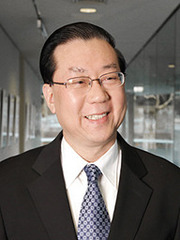Talk Title: Biomedical Big Data Processing: Opportunities and Challenges
Abstract: The repaid growth of various types of data from innumerable diverse sources, such as whole-body molecular imaging, new sensors and other devices (related to genes, proteins, metabolism, pathology, organs, systems, individuals and population) has created an incredible opportunity for new information findings, knowledge development and services improvements. The large volume of data sets has also created a huge burden for data processing and retrieval. Until very recently, most of biomedical research and healthcare delivery are still based on their traditional ways and their directly related information, such as diagnosis images, blood test results, etc. However, such practices have started to have a revolutionary change, due to much previously ignored information is becoming so relevant, and can possibly be integrated into the biomedical research and healthcare delivery equations, such as precision medicine and disease management. In this talk, we will discuss the impact of big data and artificial intelligence in biomedicine and how they will reshape the future medical research and healthcare delivery. A couple of techniques to reduce the computational space and time complexity, such as data compression and data quality control for functional imaging, graphic model and graph-based multi-modality medical images retrieval will be discussed.
Biosketch: Professor (David) Dagan Feng is Director, Biomedical and Multimedia Information Technology (BMIT) Research Group, Funding Head, School of Information Technology (renamed as School of Computer Science this year) and Funding Director, Institute of Biomedical Engineering & Technology (before the formation of the School of Biomedical Engineering this year) at the University of Sydney. He received his ME in Electrical Engineering & Computer Science (EECS) from Shanghai Jiao Tong University in 1982, MSc in Biocybernetics and PhD in Computer Science from the University of California, Los Angeles (UCLA) in 1985 and 1988 respectively, where he received the Crump Prize for Excellence in Medical Engineering. In conjunction with his team members and students, he has been responsible for more than 50 key research projects, published over 900 scholarly research papers, pioneered several new research directions, and made a number of landmark contributions in his field. He has served as Chair of the International Federation of Automatic Control (IFAC) Technical Committee on Biological and Medical Systems, Special Area Editor / Associate Editor / Editorial Board Member for a dozen of core journals in his area, and Scientific Advisor for a number of prestigious organizations. He has been invited to give over 100 keynote presentations in 23 countries and regions, and has organized / chaired over 100 major international conferences / symposia / workshops. Professor Feng is Fellow of ACS, HKIE, IET, IEEE, and Australian Academy of Technological Sciences and Engineering.

